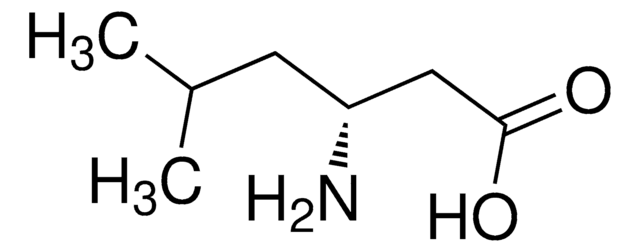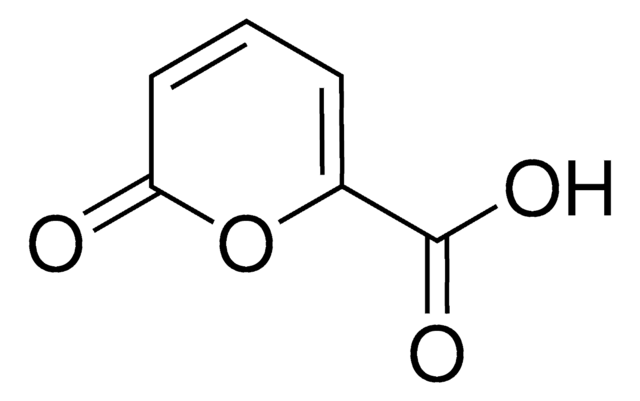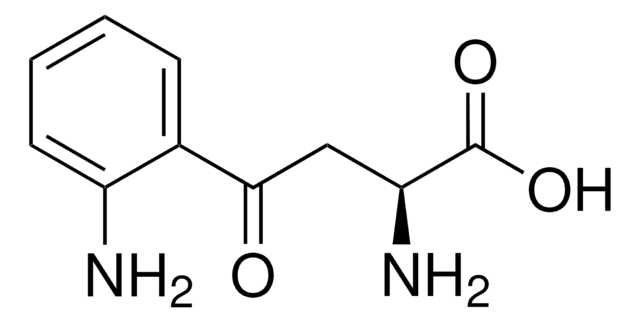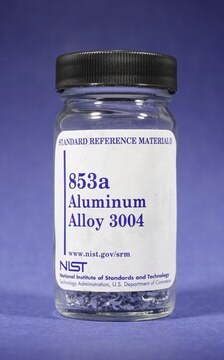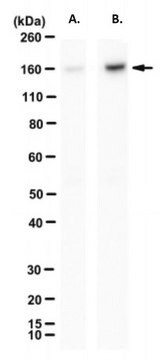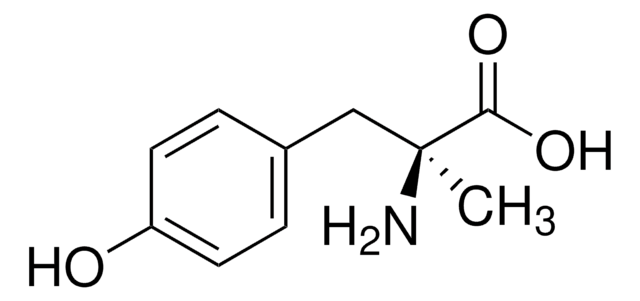MABF2781
Anti-LCMV Nucleoprotein Antibody, clone VL-4
Sinonimo/i:
LCMV Nucleocapsid Protein, Protein N
About This Item
FACS
IHC
Neutral
activity assay
activity assay: suitable
flow cytometry: suitable
immunohistochemistry: suitable
neutralization: suitable
Prodotti consigliati
Origine biologica
rat
Livello qualitativo
Forma dell’anticorpo
purified antibody
Tipo di anticorpo
primary antibodies
Clone
VL-4, monoclonal
Purificato mediante
using protein G
Reattività contro le specie
virus
Confezionamento
antibody small pack of 100 μL
tecniche
ELISA: suitable
activity assay: suitable
flow cytometry: suitable
immunohistochemistry: suitable
neutralization: suitable
Isotipo
IgG2aκ
N° accesso UniProt
Temperatura di conservazione
-10 to -25°C
Informazioni sul gene
vaccinia virus ... N(956592)
Specificità
Immunogeno
Applicazioni
Evaluated by ELISA with recombinant LCMV nucleoprotein .
ELISA Analysis: A serial dilution of this antibody detected recombinant CLMV nucleoprotein.
Tested Applications
ELISA Analysis: A representative lot detected LCMV Nucleoprotein in ELISA application (Eschli, B., et al. (2007). J Virol. 81(21):11650-7).
Flow Cytometry Analysis: A representative lot detected LCMV Nucleoprotein in Flow Cytometry application (Herz, J., et al. (2015). J Exp Med. 212(8):1153-69).
Neutralizing: A representative lot detected LCMV Nucleoprotein in Neutralizing applications (Eschli, B., et al. (2007). J Virol. 81(21):11650-7).
Activity Assay: A representative lot detected Nucleoprotein in lymphocytic choriomeningitis virus (LCMV) (Data courtesy of the Division of Experimental Virology, Department of Biomedicine, University of Basel, Switzerland).
Immunohistochemistry Applications: A representative lot detected LCMV Nucleoprotein in Immunohistochemistry applications (Herz, J., et al. (2015). J Exp Med. 212(8):1153-69; Urata, S., et al. (2018). PLoS Pathog. 14(7):e1007172).
Note: Actual optimal working dilutions must be determined by end user as specimens, and experimental conditions may vary with the end user.
Descrizione del bersaglio
Stato fisico
Ricostituzione
Stoccaggio e stabilità
Altre note
Esclusione di responsabilità
Non trovi il prodotto giusto?
Prova il nostro Motore di ricerca dei prodotti.
Codice della classe di stoccaggio
12 - Non Combustible Liquids
Classe di pericolosità dell'acqua (WGK)
WGK 2
Punto d’infiammabilità (°F)
Not applicable
Punto d’infiammabilità (°C)
Not applicable
Certificati d'analisi (COA)
Cerca il Certificati d'analisi (COA) digitando il numero di lotto/batch corrispondente. I numeri di lotto o di batch sono stampati sull'etichetta dei prodotti dopo la parola ‘Lotto’ o ‘Batch’.
Possiedi già questo prodotto?
I documenti relativi ai prodotti acquistati recentemente sono disponibili nell’Archivio dei documenti.
Il team dei nostri ricercatori vanta grande esperienza in tutte le aree della ricerca quali Life Science, scienza dei materiali, sintesi chimica, cromatografia, discipline analitiche, ecc..
Contatta l'Assistenza Tecnica.